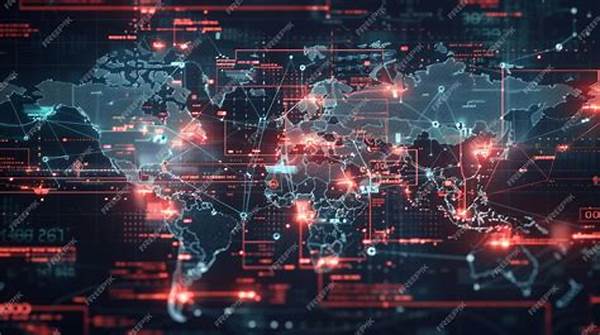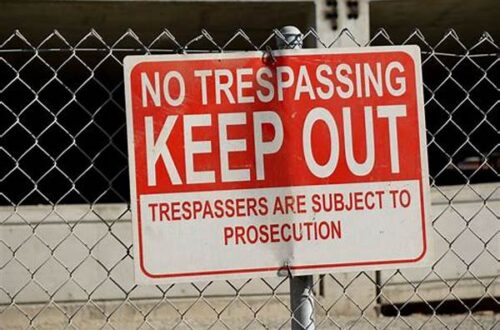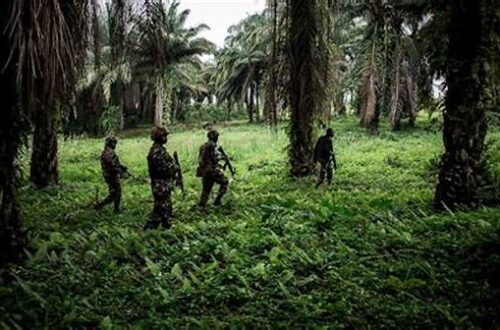In the realm of global diplomacy and national security, espionage activities present a significant threat that necessitates a unified approach from the international community. As nations strive to protect their sensitive information and maintain geopolitical stability, coordinated international response to espionage activities becomes a crucial mechanism. This article delves into the intricacies of international collaboration aimed at mitigating espionage threats that are increasingly sophisticated and pervasive.
Strengthening Global Security Through Unified Efforts
The complexity of espionage activities and their potential to undermine national security underscores the importance of a coordinated international response. Countries across the globe have recognized the need to work together to enhance intelligence-sharing mechanisms, implement stringent counter-espionage policies, and develop joint strategies to combat these threats. By fostering an environment of trust and collaboration, nations can better anticipate and react to espionage activities that exploit modern technological advancements. This collaborative approach not only aids in preventing the escalation of espionage threats but also reinforces diplomatic ties by emphasizing collective security over individual interests.
Furthermore, the coordinated international response to espionage activities serves as a deterrent against potential aggressors. Demonstrating a united front, countries can convey a strong message that espionage will not be tolerated and that such actions will be met with concerted efforts to identify and mitigate risks. The international community, through shared intelligence operations and policy alignment, can effectively counteract espionage activities that threaten the fabric of global security. This unified stance is essential in preserving the sovereignty of nations and ensuring a stable and secure international environment.
Components of a Successful Coordinated Response
1. Intelligence Sharing: Central to a coordinated international response to espionage activities, intelligence sharing enhances situational awareness and provides actionable insights for timely interventions.
2. Joint Exercises: Conducting joint exercises strengthens the interoperability of national security forces, which is vital for responding effectively to espionage threats.
3. Legal Frameworks: Harmonizing legal frameworks can facilitate the prosecution of those involved in espionage and streamline international cooperation in law enforcement.
4. Technology Integration: Leveraging advanced technologies and cybersecurity measures is critical for detecting and preventing electronic espionage activities.
5. Diplomatic Engagement: Continuous diplomatic engagement ensures that nations remain committed to supporting a coordinated international response to espionage activities and addressing evolving threats.
Challenges in Implementing Coordinated Strategies
Despite the evident necessity for a coordinated international response to espionage activities, several challenges impede its effective implementation. Diverse political agendas and varying levels of resource allocation can hinder seamless collaboration among countries. Differences in legal systems and privacy concerns further complicate intelligence-sharing efforts, necessitating robust frameworks that respect national sovereignties while addressing global security concerns.
Moreover, trust issues and geopolitical tensions can stifle collaborative efforts, as nations may be reluctant to fully disclose sensitivities or share critical intelligence due to underlying rivalries or historical conflicts. Therefore, building trust and transparency among nations is imperative for fostering a conducive environment for collaboration. Establishing joint task forces and secure communication channels can bridge some of these trust deficits, paving the way for more effective responses to espionage activities on the international stage.
Enhancing International Cooperation
A coordinated international response to espionage activities is crucial in mitigating the multifaceted threats posed by espionage. This requires an intricate balance of diplomatic, legal, and technical strategies that harness the collective strengths of participating nations. Diplomatic channels must be leveraged to engage in comprehensive dialogue, allowing nations to align their strategic objectives and strengthen their commitment to a united front against espionage threats.
Moreover, fostering an international culture that prioritizes cybersecurity and counter-espionage education is vital. By enhancing the capabilities of security personnel and investing in cutting-edge technologies, countries can proactively address potential vulnerabilities. A coordinated international response to espionage activities is only as effective as the readiness and willingness of nations to engage in continuous learning and adaptation to an ever-evolving threat landscape.
Building a Resilient Security Framework
To ensure that a coordinated international response to espionage activities remains effective, nations must continuously assess and adapt their strategies to reflect emerging trends and technologies. Regular evaluations of intelligence-sharing mechanisms and the establishment of best practices can strengthen the resilience of these frameworks. By facilitating open lines of communication and investing in capacity-building initiatives, countries can enhance their preparedness and responsiveness to espionage incidents.
Additionally, promoting international forums for discussing threats and solutions can foster a sense of community and shared responsibility among nations. When countries work collectively, they not only enhance their individual security but also contribute to global stability. A robust, coordinated international response to espionage activities ensures that how nations address espionage remains comprehensive, dynamic, and robust, capable of evolving alongside the threats themselves.
A Comprehensive Understanding of Espionage
In sum, addressing the pervasive and evolving threat of espionage requires an intricate blend of international cooperation and strategic foresight. Coordinated international response to espionage activities is essential in deterring, detecting, and responding to such activities that can severely disrupt national and global security. Through shared efforts, aligned policies, and collaborative operations, the international community can achieve greater success in safeguarding sensitive information and maintaining geopolitical peace.
A strategic focus on innovation, education, and diplomacy remains crucial in fortifying global defenses against espionage. By continually assessing potential threats and refining response strategies, nations can uphold the integrity and security of global society. This unified approach not only preserves national interests but also promotes a stable and secure international environment for all.





